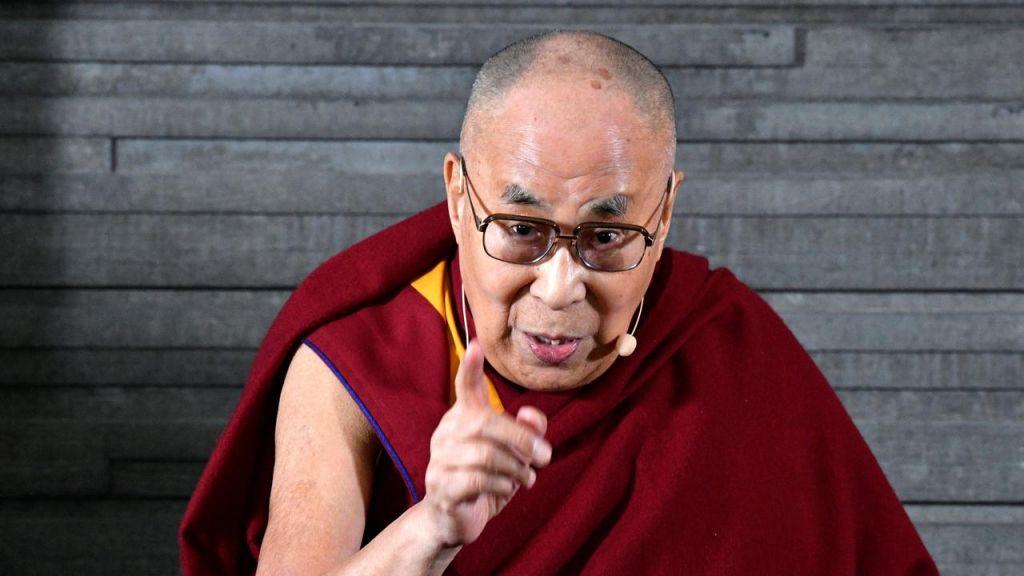(TibetanReview.net, Jul02’23) – “The reincarnation of the Living Buddhas must be approved by the central government”, “the successor must be searched within China,” “Living Buddhas are not allowed to be looked for outside the country,” the Dalai Lama does not have any say in whether or not he will reincarnate. This is the stand of the Chinese government, expressed most recently at a press conference in Beijing, ludicrous as it may sound for an atheist government to say.
Such an assertion of power is a blasphemy against the very foundation of the communist ideology which holds that “religion is the opiate of the masses.” China’s own top cadres have only years ago touted the imperative of atheism for its members, and even launched a campaign to purge religious believers in their midst. But now that its top leaders and their academic legitimizers are very obviously embracing religious belief in reincarnation in Tibetan Buddhism, albeit in a perverted way and for the abusive purpose of making a political power point, these crusaders for atheism appear to have become thunderous in their silence.
At a press conference held on Jun 29 jointly by China Tibetology Research Center and the All-China Journalists Association, attended by Chinese and foreign journalists, so-called “experts on Xizang affairs” have sought to give an outlandish coat of academic veneer to what is patently their political masters’ assertion of brute power over their hapless Tibetan colonial subjects.
Asked whether the reincarnation convention of Living Buddhas will continue, Zhang Yun, a researcher with the China Tibetology Research Center, has said the convention will continue to exist as this is a historical tradition and China’s religious administration has also issued the Measures on the Management of the Reincarnation of Living Buddhas of Tibetan Buddhism in 2007. The convention should not be changed or suspended by certain individuals, China’s official globaltimes.cn Jun 29 cited Zhang as saying.
Zhang was obviously referring to one-time remarks by the current Dalai Lama that he may choose not to reincarnate after all, that he may well be the last in his line of reincarnate successions.
In its “Tibetan Policy and Support Act of 2020,” the United States said that “the person who reincarnates has sole legitimate authority over where and how he or she takes rebirth and how that reincarnation is to be recognized and if there is a need for a 15th Dalai Lama to be recognized.” Anyone who knows anything about the Tibetan Buddhist reincarnation system can see that this is unexceptionable. But China says, in criticizing it, that it “grossly interfered in China’s internal affairs” simply because it raises a big question mark on its leaders’ sine qua non religious-belief credentials for recognizing the reincarnation of a Tibetan Buddhist master.
Based on the false assumption of its legitimacy, Zhang has said China’s 2007 Measures on the Management of the Reincarnation of Living Buddhas of Tibetan Buddhism mandates that “Living Buddha reincarnations must be approved by the central government” and “Living Buddhas are not allowed to be looked for outside the country.” Anyone who reads the measures can see that they constitute gross interference in the spiritual aspect of the Tibetan Buddhists’ belief system which no sensible atheist would even talk about.
Tibetan Buddhist reincarnations have been recognized all over the world in recent decades; so, atheist China only subjects itself to ridicule by making such outlandish rules by assuming a legitimacy it simply cannot have even in its own repressive dominion except by use of coercion and brute force.
Despite all that, however, there will no doubt be a Chinese 15th Dalai Lama if Beijing goes ahead with a pretence of discovering and recognizing one, and installing him, just as anyone anywhere else can also have his or her own 15th Dalai Lama if they wish for one for their own purposes. However, the big question is legitimacy, and nothing can be more damning than having one imposed by a violently atheist party-state government in an act of asserting brute power.
The situation of the Chinese government-recognized and installed 11th Panchen Lama Gyaltsen Norbu is a precursor to the fate awaiting any such imposed 15th Dalai Lama. He will be installed after a charade of discovery and recognition in well-publicized ceremonies, most likely led by Gyaltsen Norbu; given high-sounding, sinecure posts with no power, and will be trained in the lexical of communist Chinese propaganda. But as in the case of Gyaltsen Norbu, he will lack any legitimacy despite people being coerced or bribed to pay obeisance to him during his periodically chaperoned tours of Tibetan regions while being otherwise ensconced in a Beijing home under the watchful tutelage, supervision and control of the party’s United Front Work Department.
And then, unlike in the case of the Panchen Lama, there will be a duly recognized and enthroned 15th Dalai Lama living in exile over which China will have no control. And the religious repression in Tibet will include cracking down on devotees showing faith in him.

